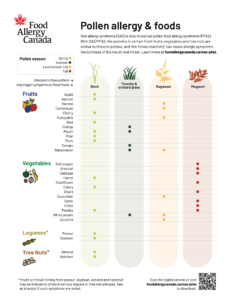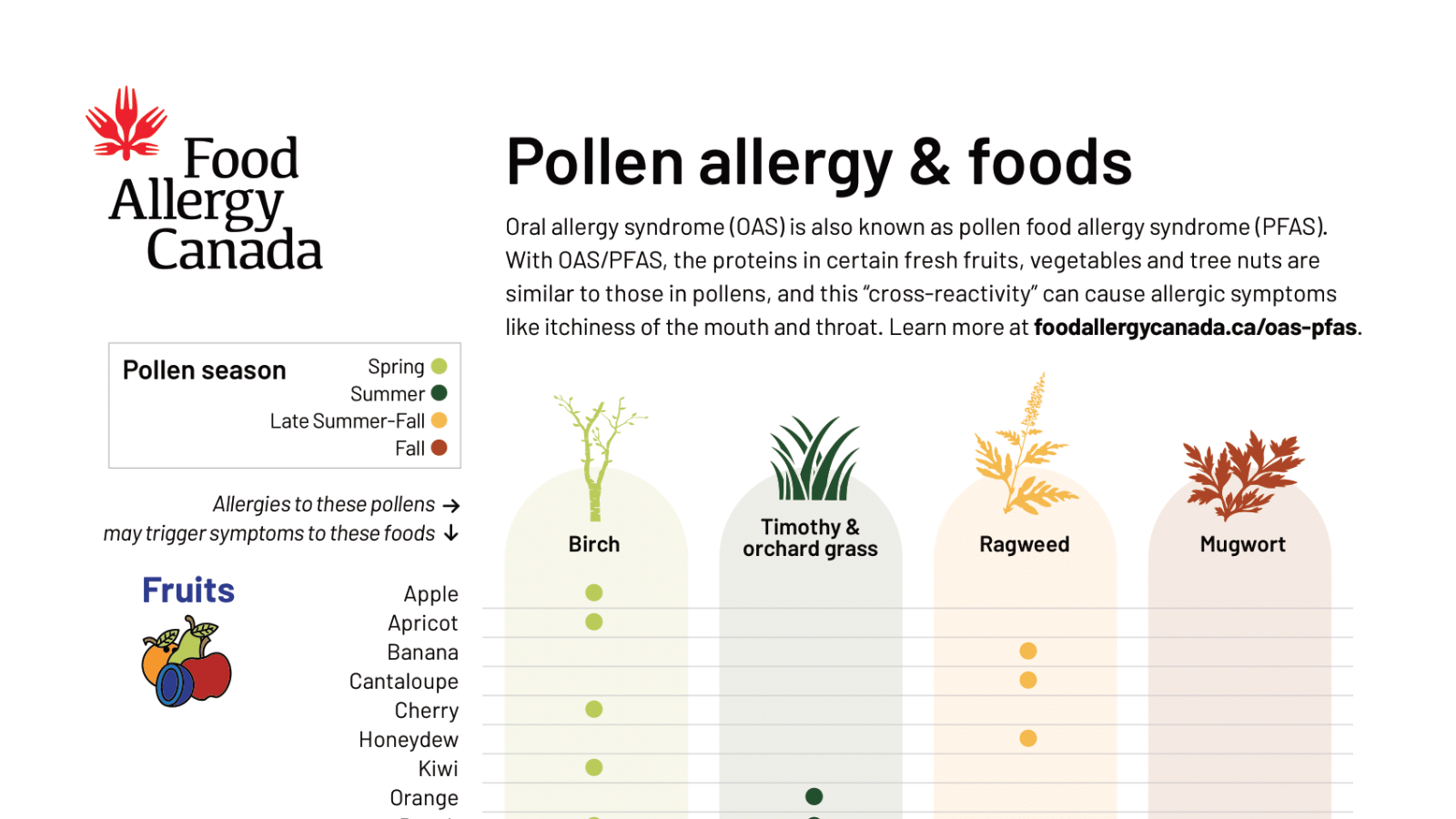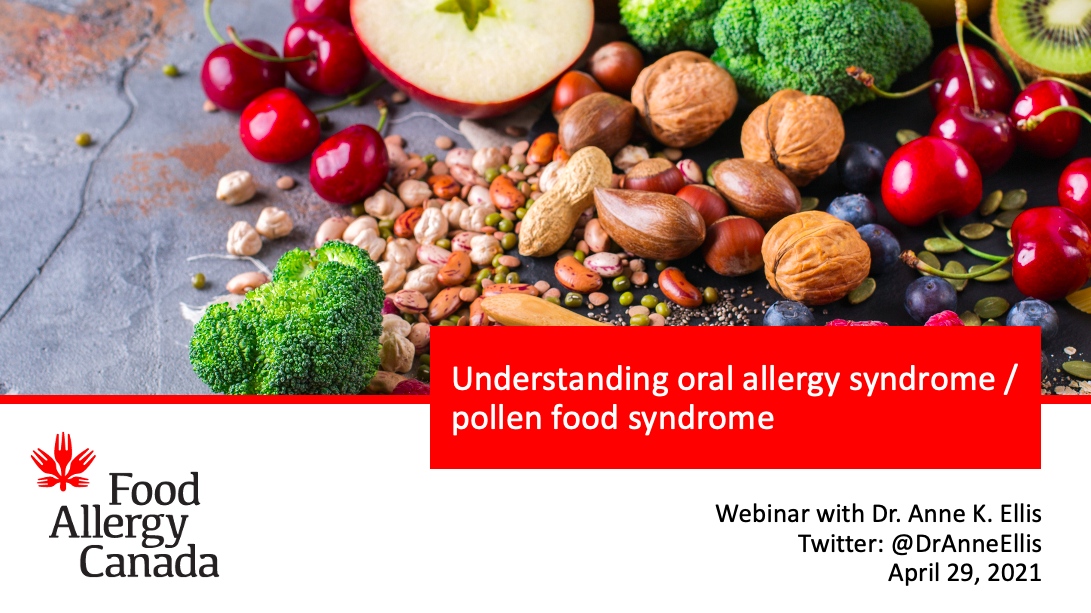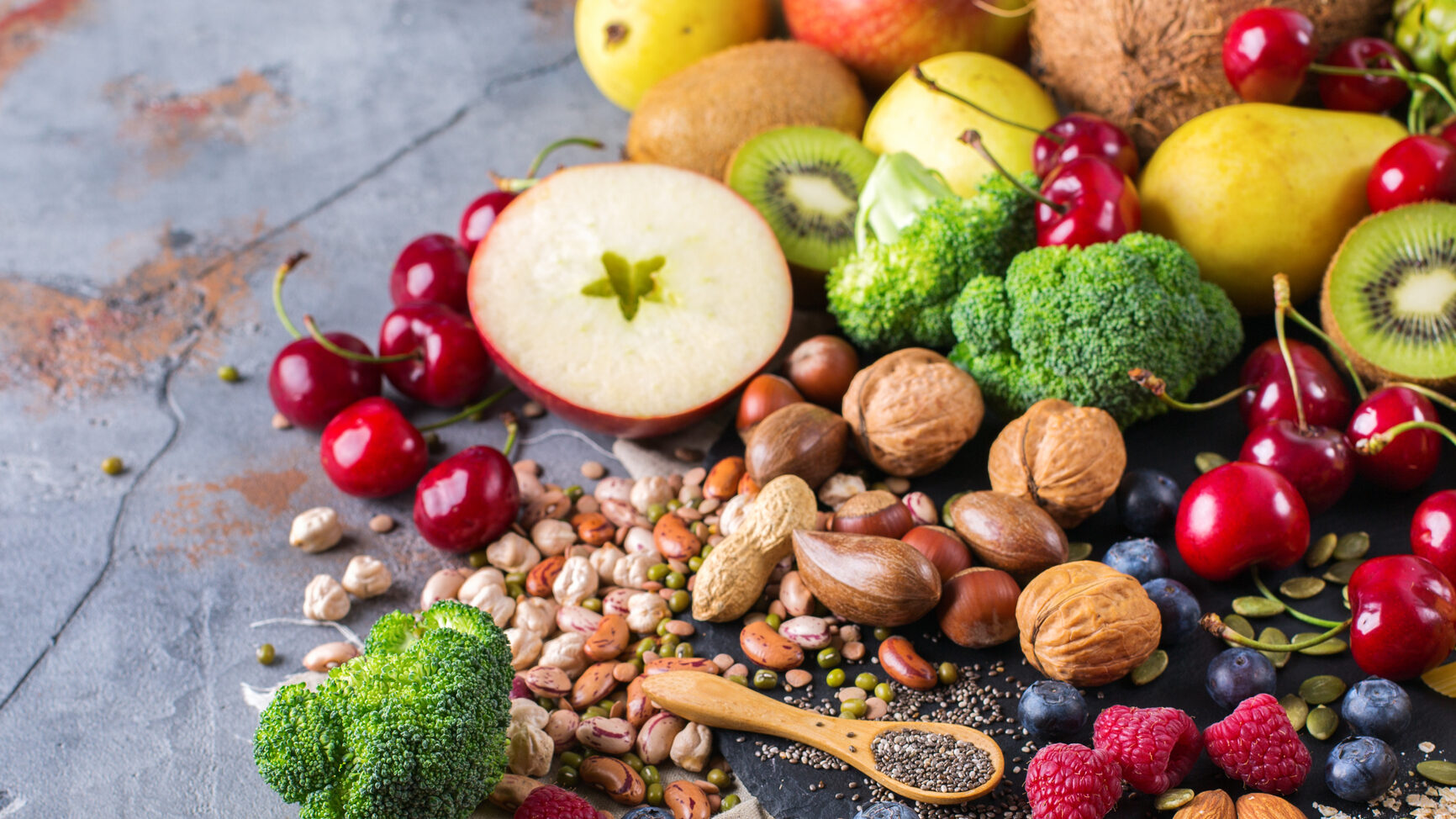Pollen food allergy syndrome (PFAS), also known as oral allergy syndrome (OAS), is considered a type of food allergy.
With PFAS, the proteins in certain fresh fruits, vegetables and tree nuts are similar to those in pollens, and this “cross-reactivity” can cause allergic symptoms like itchiness of the mouth and throat. People with PFAS are allergic to pollen, but sometimes the pollen allergy is mild.
Symptoms
The symptoms of PFAS are usually itchiness of the mouth and throat when eating fresh fruits or vegetables and/or tree nuts related to the pollen to which you are allergic. Occasionally, swelling of the lips, tongue, mouth, or throat can occur. Examples of some of the fruits, vegetables and nuts that are similar to certain pollens are listed in our pollen allergy & foods chart.
Symptoms typically develop within a few minutes of eating. Although it is uncommon, PFAS can lead to anaphylaxis. PFAS symptoms can occur at any time of the year, but symptoms may be worse during pollen seasons.
Diagnosis
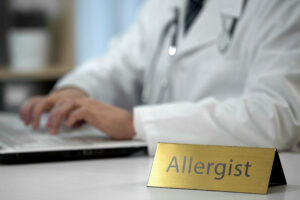
Allergists can review a patient’s history and may perform different tests to confirm PFAS, such as skin prick tests to certain pollens as well as the foods causing the symptoms. If you think that you or you child may have PFAS, a referral to an allergist can help you obtain a formal diagnosis.
Managing

Usually, people with PFAS avoid the fresh or raw food causing symptoms. They can often tolerate the food if it is well cooked or heated because preparing the food with heat changes the protein composition of it. Canned foods can also be an option, and some find that peeling the impacting fruit or vegetable is helpful.
It is not necessary to avoid all foods that can cross-react if they can be eaten without symptoms. Plus, symptoms can be very specific to certain types of fruits and vegetables. For example, some may only react to one apple variety and not to another.
In cases where there may be a higher risk of anaphylaxis, an allergist may recommend that you avoid certain food and carry an epinephrine auto-injector. These risk factors include involving more than a little itching in the mouth/throat, symptoms to tree nuts, and/or positive skin prick tests to the allergy extracts.
Treating

Treatment of this condition varies. Many people manage by avoiding the foods causing symptoms or consuming modified versions of the foods. Some people take antihistamines to relieve mild symptoms. It is not clear if receiving allergy shots (immunotherapy) for pollen allergy is helpful for PFAS.
Please speak to your doctor for treatment options that are best suitable to you.


